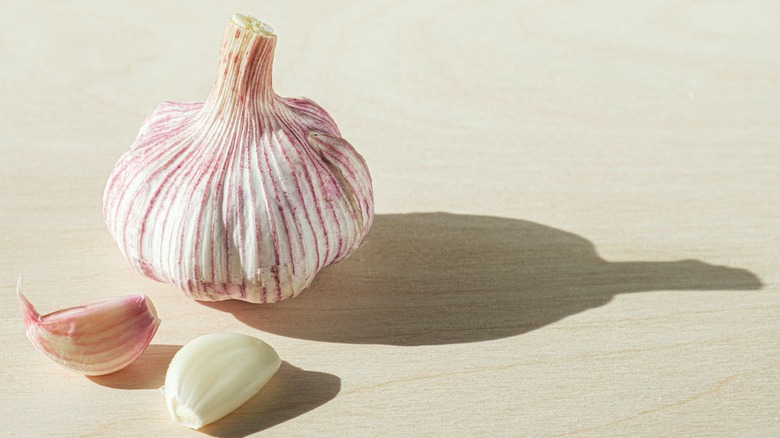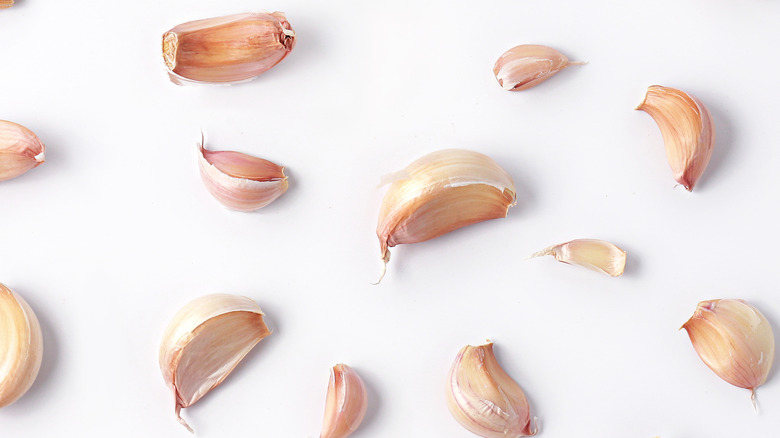You Can Stop Mincing Garlic For Stew. Here's Why
Are you ga-ga for garlic? If the answer is an enthusiastic yes, then listen up. The building block for any and every savory recipe, Well+Good explains that garlic is an aromatic that imparts and amplifies flavors. However, admirers of allium might be pleasantly surprised to learn that when it comes to crafting stews, you can stop all that strenuous mincing. Here's why you can and should keep those cloves intact.
Scientifically known as allium sativum, the University of Missouri explains that garlic can be categorized either as hardneck or softneck, where the latter lacks a woodsy stalk surrounding its cloves. Cultivars like the sweet Rose de Lautrec, citrusy Korean Red, or mild Silver White may have unique profiles, however, all garlic maintains the same pungent characteristic. Bordering somewhere between spicy and acidic, it's this potency that can cause many to have a love/hate relationship with the tiny bulbs.
The ultimate vampire repellent, Live Science explains that the volatile molecules in garlic — the same ones that can translate into pleasant aromas during cooking — can actually linger well after digestion, causing a garlicky perfume that lasts. Despite this, garlic continues to be a recipe staple. But, rethinking how you use the cloves could be a game changer.
Whole cloves infuse dishes just as effectively
Mincing is an ideal way to prepare garlic that's meant for dressings or marinades. However, there are also scenarios when mincing can be avoided, namely when making stew. It's important to remember that flavor changes as garlic is minced. According to WebstaurantStore, cutting into a clove damages the cell walls and triggers a reaction where punchy sulfuric compounds are released. That said, the finer that garlic is chopped, the more intense its aroma and flavor will be, which can overpower other ingredients in the pot.
In contrast, Carnegie Museums explains that when cloves are left intact and then heated, alliin molecules convert into new substances before having a chance to react with alliinase, resulting in a sweeter and more mellow flavor. But, that's not all. Although it eliminates some prep work, keeping cloves whole is also more efficient. Just like soups and braises, Cook's Illustrated shares that stews rely on lengthy simmering processes that allow ample time for ingredients to effectively break down as the pot simmers away. While whole cloves of garlic will infuse an abundance of flavor into the stew, if you want to add a bit more punch, you can smash the cloves first — just don't forget to fish out any cloves before serving!

